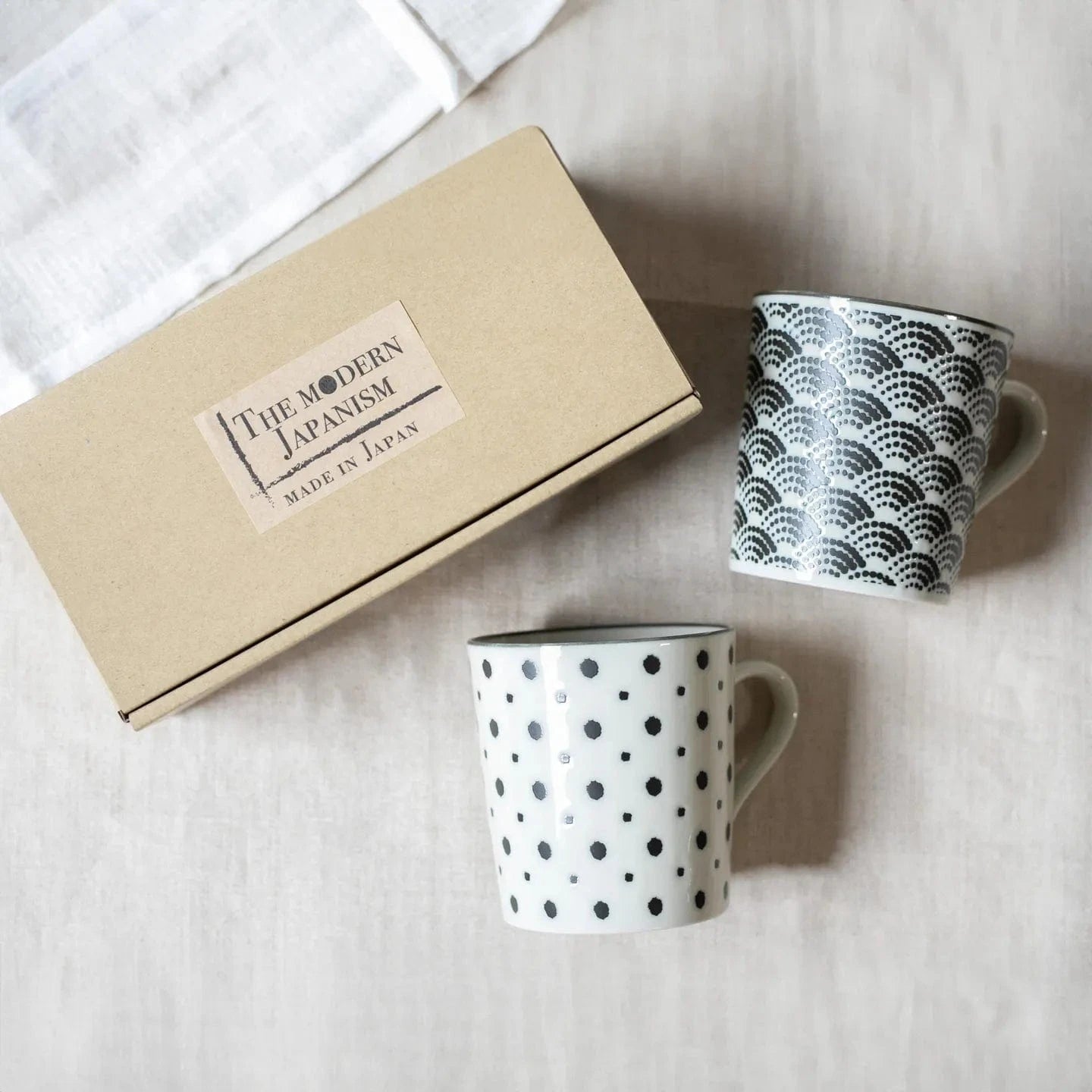
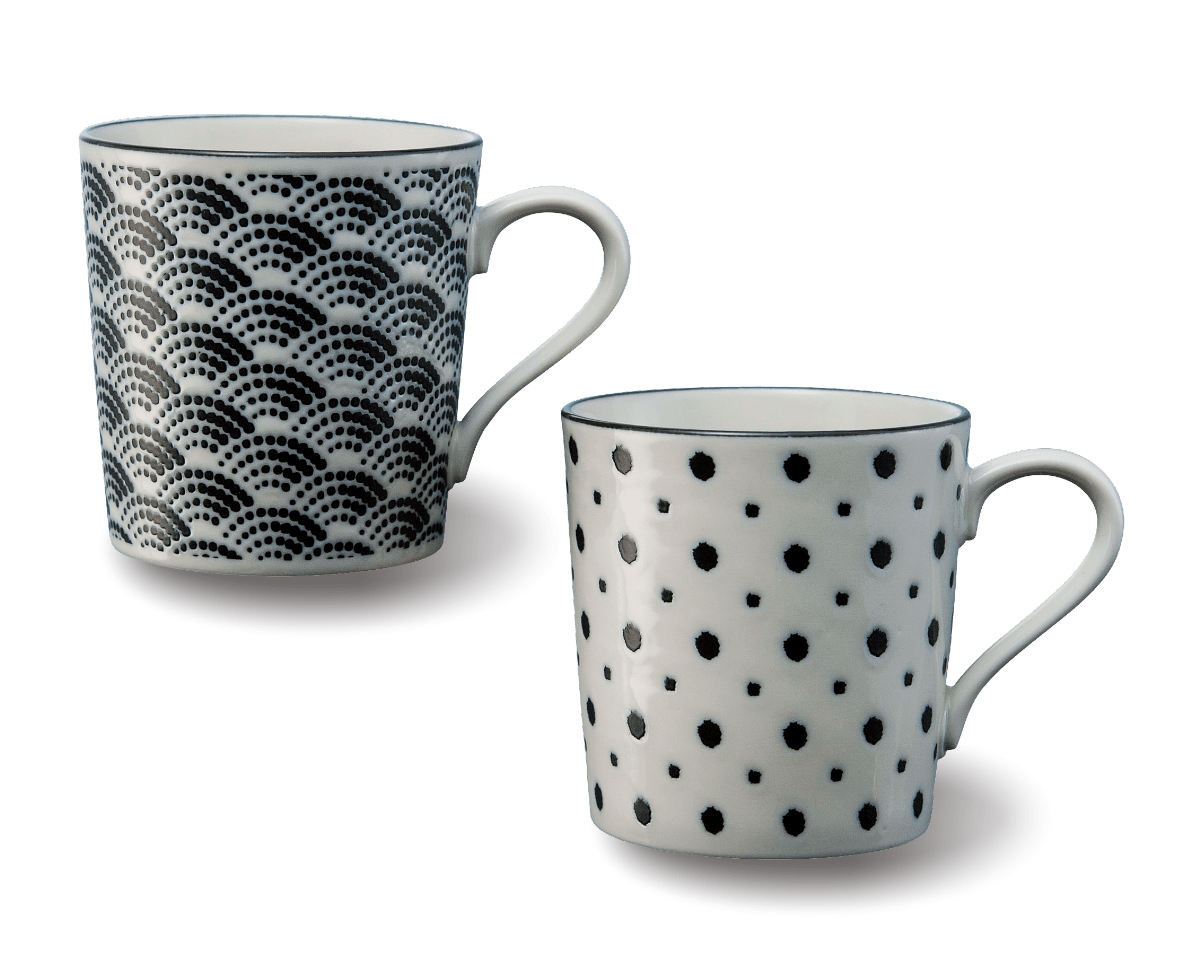
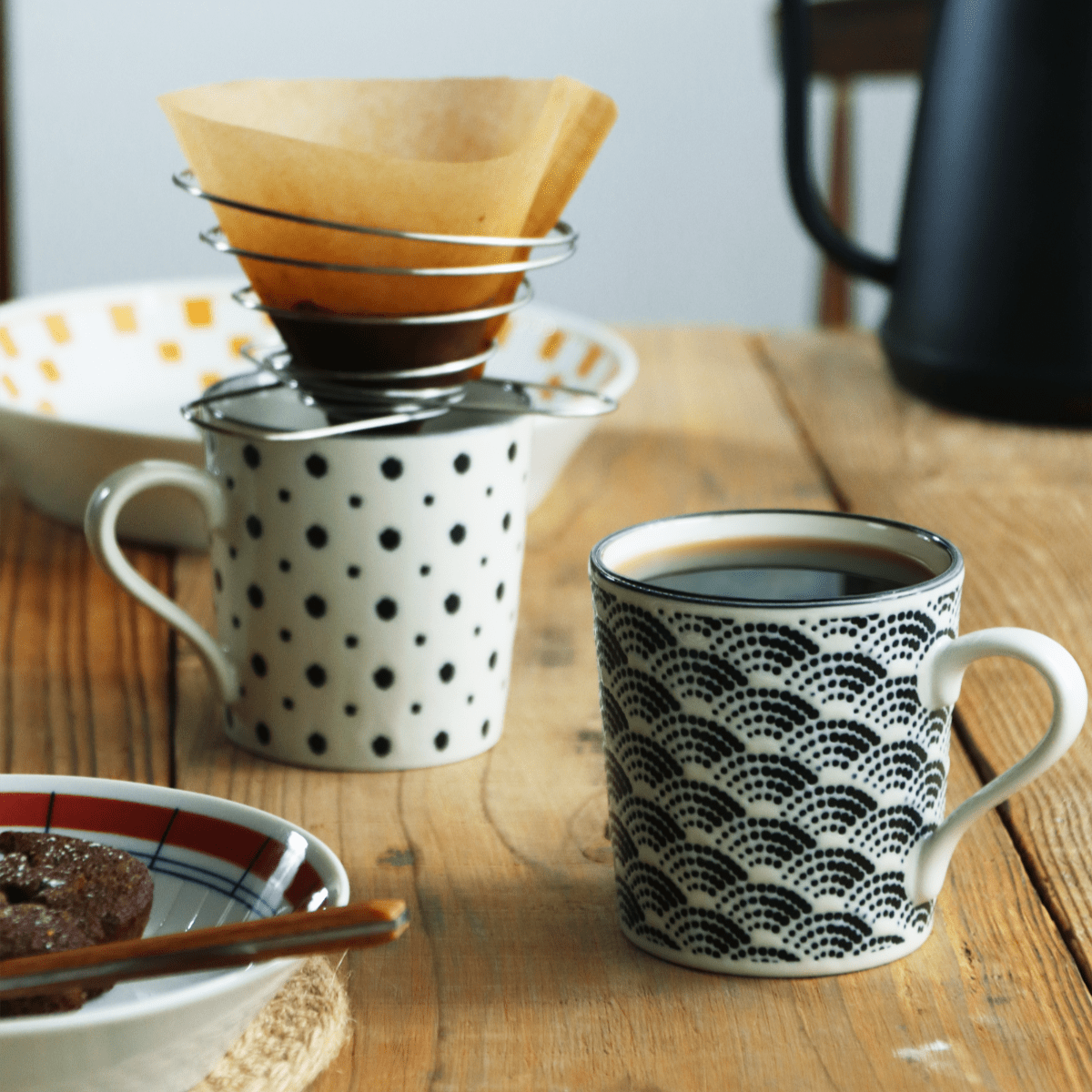
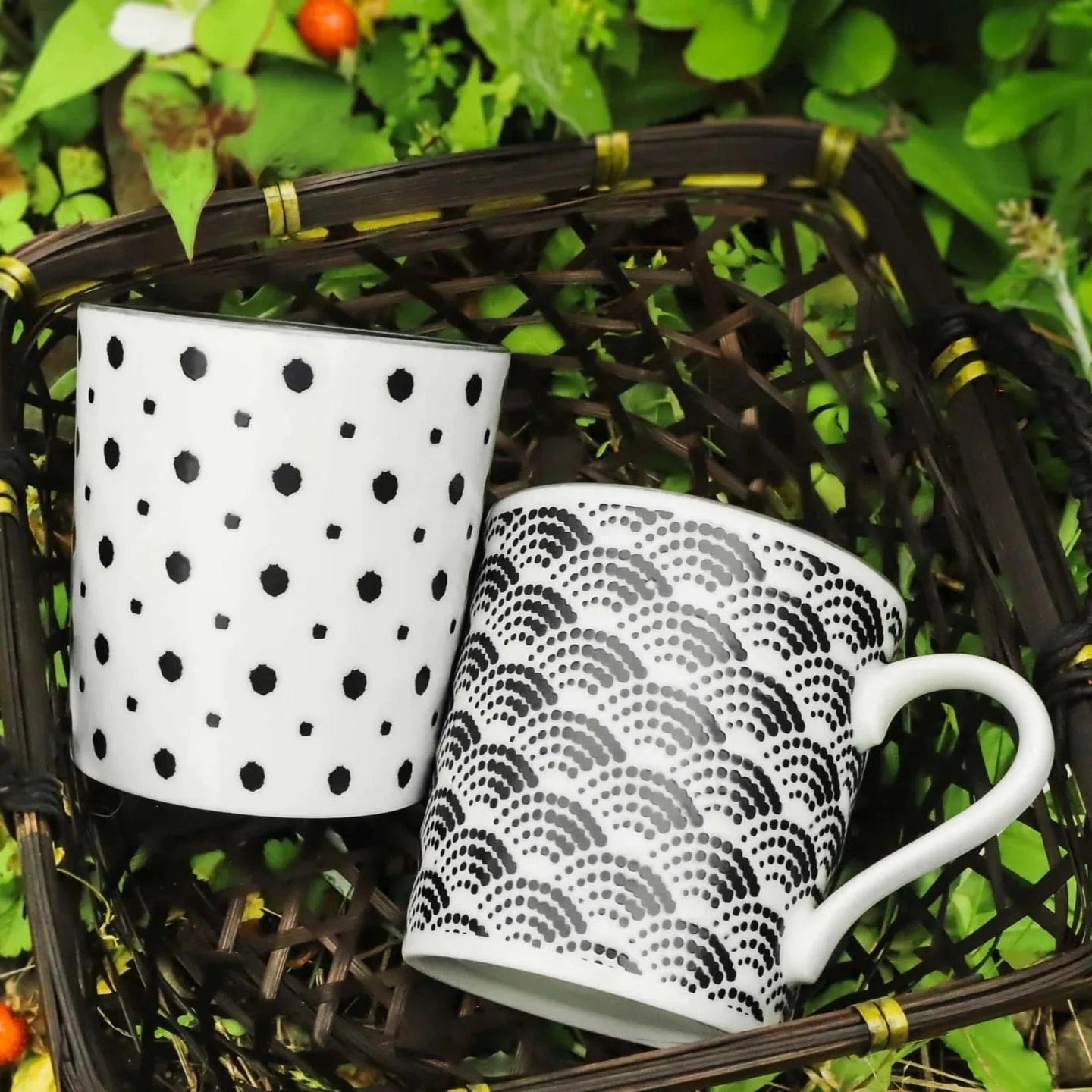
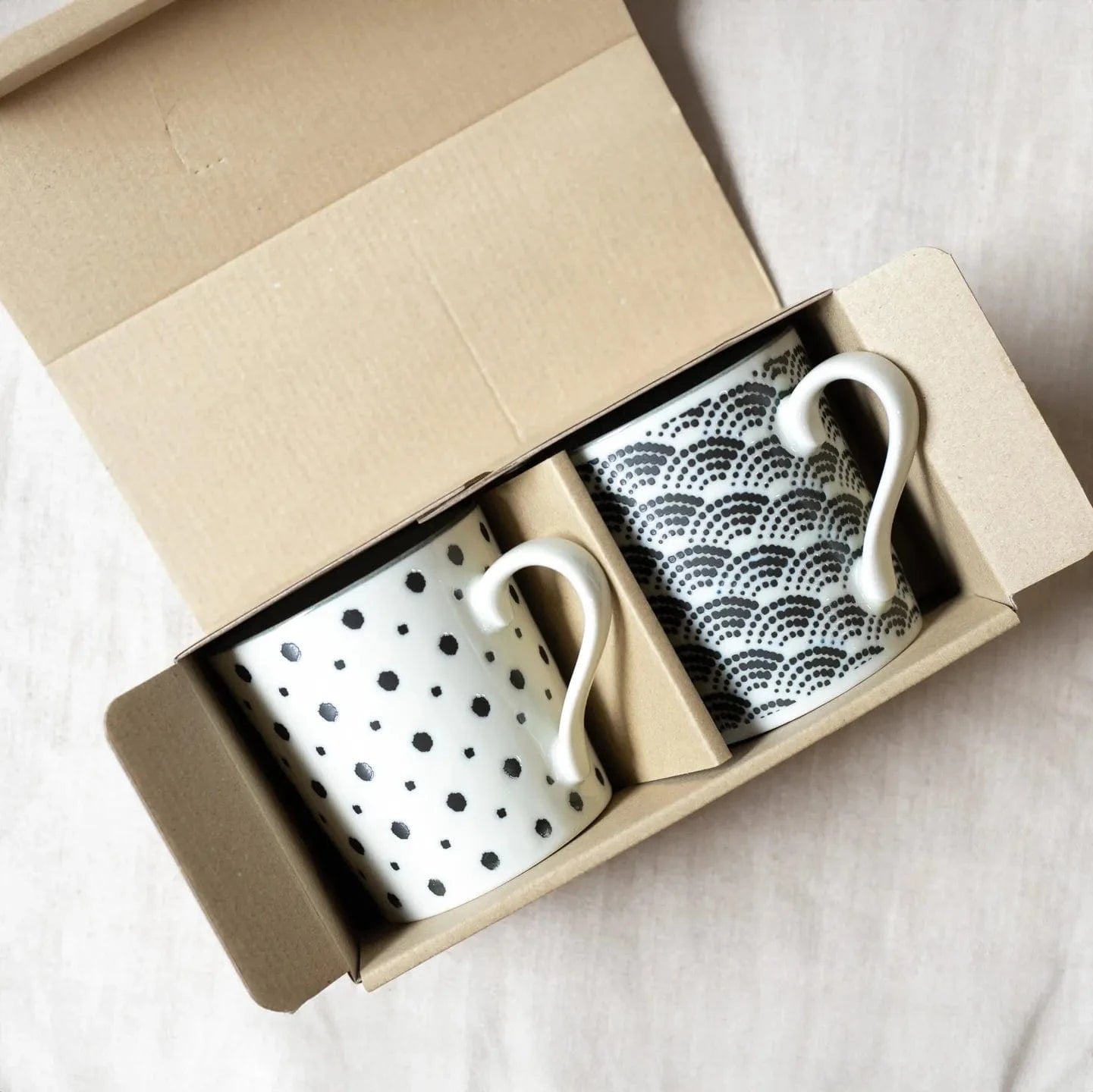
KOMON Mug Pair
Why You'll Love It?
Fast & Secure Delivery from Japan to your Door [Shipping Policy]
No surprise U.S. customs fees. [How we handle U.S. Customs for you]
Shop Safely with Encrypted Checkout and Verified Gateways.

KOMON Mug Pair
KOMON Mug Pair – Everyday Moments with a Touch of Japanese Tradition
Elevate your daily coffee or tea ritual with the KOMON Mug Pair, a beautifully crafted set of two porcelain mugs inspired by traditional Japanese textile patterns. Each mug features a distinct komon motif—such as the flowing waves of seigaiha, symbolizing peace and longevity, and the cheerful mame-shibori, known for its joyful dotted design. These mugs invite you to enjoy your favorite brew while immersing yourself in a world of classic design.
Thoughtfully sized at a comfortable 3.35 inches in diameter × 3.54 inches high (85 × 90 mm) with a generous 12.85 fl oz (380 ml) capacity, the mugs strike an ideal balance between form and function, making them perfect for your morning coffee or evening tea. Their sleek silhouettes and monochrome palette seamlessly complement both Japanese and Western interiors, providing an effortless elegance to your tableware.
Crafted from fine porcelain and presented in a minimalist die-cut box, this pair makes a refined addition to your own collection or an exceptional gift for someone special. Whether starting your day or winding down, these mugs enhance the moment with cultural depth and sophistication.
The Symbolism Behind Each Plate
Every plate in the KOMON set is more than just a vessel—it’s a story passed down through generations, etched in porcelain. Each design connects the beauty of daily life with centuries of Japanese tradition—bringing meaning, style, and intention to every meal you serve.
Product Information
Care instructions
Note
FAQs
All you need to know about Japanese Pottery.
What types of traditional pottery are made in Japan?
Japan is home to several renowned pottery styles, including Mino ware (Gifu), Bizen ware (Okayama), Arita and Imari ware (Saga), Shigaraki ware (Shiga), and Mashiko ware (Tochigi). Each region has its own distinct materials, glazes, and firing techniques that reflect local history and aesthetics. Toki City in Gifu Prefecture is particularly renowned as the heart of Mino ware (Minoyaki)—the most widely produced pottery style in Japan.
What materials are used in artisan Japanese pottery?
Most artisan pottery in Japan is made from locally sourced clay, often mixed and refined by hand. Natural minerals and ash are used in glazes, and many pieces are wood-fired or fired in traditional climbing kilns (noborigama), producing unique surface textures and natural variations.
Are artisan Japanese pottery pieces safe for food use?
Yes. Authentic artisan pottery is made with food-safe, lead-free glazes and is carefully fired at high temperatures to ensure durability and safety. However, it's important to follow care instructions, especially for unglazed or porous ceramics.
What makes Japanese pottery different from Western ceramics?
Japanese pottery often emphasizes wabi-sabi—the beauty of imperfection—resulting in organic shapes, subtle asymmetry, and natural glazes. Unlike Western ceramics, which may prioritize uniformity, Japanese pieces often celebrate the individuality of each item, reflecting the artist's hand and the firing process.
How should I care for artisan-made Japanese pottery?
Hand-wash pottery with mild soap and avoid extreme temperature changes (like placing hot items into cold water). Some unglazed pieces may absorb moisture, so allow them to fully dry before storing. Avoid microwaves or dishwashers unless the piece is specifically labeled as safe for such use.

